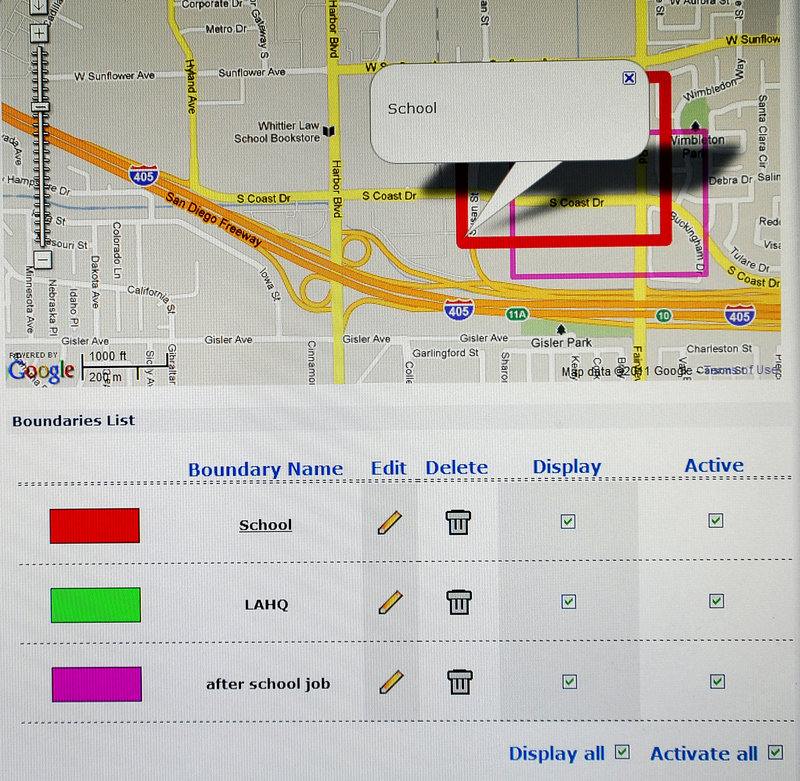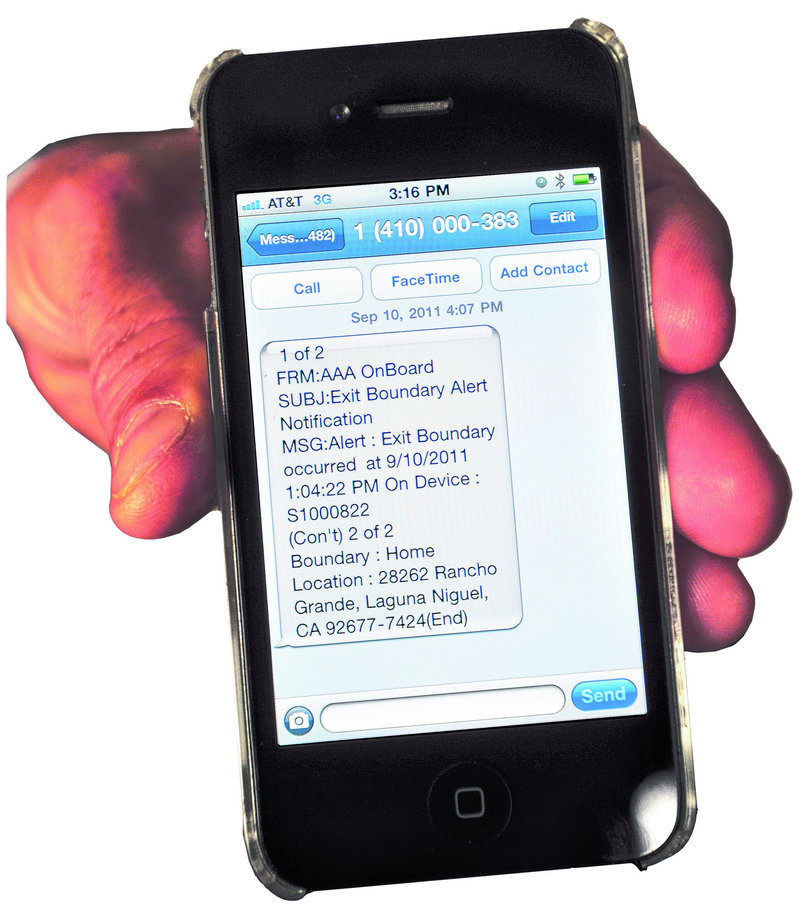How would a teenager drive if mom or dad were in the back seat?
AAA insurance customers can find out, without enduring the booming bass of their kids’ favorite hip-hop hits.
The association is offering every customer, free of charge, a GPS device — about the size of a Chunky candy bar — that can track where their car is, how far it has gone and when it exceeds a set speed. The device is similar to other commercial products that track drivers’ whereabouts and driving habits.
The device can send parents an email or text alert when a teenager leaves school and arrives at the soccer game — or leaves home and arrives in the Old Port when they’re supposed to be at a friend’s house.
“We wanted to provide a tool to help parents coach their teen driver,” said Cletus Nunes, who is based in California as AAA’s group manager for automotive and wireless product development. “The value of the tool is letting them know you’re monitoring them and you’re parenting. It’s not about ‘gotcha!’“
Not surprisingly, some teenagers have a less enthusiastic view.
“I think it’s almost like an invasion of privacy,” said Karl Rickett, 18, a Deering High School student. “It feels uncomfortable if your parents can know where you are every moment.”
Kelsey Foster, 17, said, “I don’t think it’s necessary. If you’re not keeping track of your kids on your own, that’s just silly.”
Some were less critical.
Adam Rodriguez, who is 16 and does not yet have his driver’s license, said, “I wouldn’t mind at all. I feel like I would be a good driver.”
The AAA device has been available for about a year in California, and is now available in Texas and Missouri. Northern New England is the next area to get it, said Nunes.
The association has about 4,000 of the devices in cars now and hopes to have 10,000 by the end of this year. AAA thinks the investment will pay for itself through safer driving.
“We want to see parents more involved,” Nunes said. “We want them working with their kids on a daily basis on encouraging non-risky behaviors.”
The initiative could bring in business from increasingly anxious parents who want the devices as a way of keeping tabs on their kids’ driving habits.
About 20 Maine teenagers die on the roads each year; 15 have died so far in 2011, said Pat Moody, spokesman for AAA Northern New England.
Nationally, drivers age 16 to 19 are more likely to get into a crash than those in any other age group, accounting for about 740,000 per year, said Nunes, who noted that this is national Teen Driver Safety Week.
Some parents say they would feel bad to be spying on their children.
But Nunes said, “No matter how good a kid they are and how much you love them, they’re inexperienced drivers. We all want to be friends with our kids and have a good relationship. They have plenty of friends. They need parents.”
With driver’s education and a learner’s permit, Moody said, a young driver in Maine typically gets about 45 hours of driving time with an experienced person. Then, they’re on their own.
The GPS device allows parents to do more coaching if it’s needed, he said.
But the tracking functions do raise privacy questions.
Nunes said AAA will not use the information to influence insurance rates, for instance, by raising rates for drivers who frequently exceed certain speeds.
The information could be subject to a court subpoena, but AAA plans to retain only three months of data. At some point, it hopes to have the data transferred to parents so it will not be responsible for storing any of it.
Any car made since 1996 has an onboard diagnostic outlet. The device plugs into that outlet, using the car’s computer to monitor speed while using its own GPS to note location. The device sends wireless information that can be accessed by the parent on a password-protected website.
The device cannot yet determine whether a car is exceeding a speed limit in a given location, but it can record whenever the car exceeds a predetermined speed, and where and when it happened.
It can’t tell whether other teenagers are in the car.
The parent can set boundary alerts so if the car enters or leaves an area, they are notified. If the device is disconnected, the parent is notified immediately.
The device also can be used by AAA to locate the car if it breaks down, Nunes said.
Each device costs about $150 to produce and $100 in air time, but Nunes said AAA believes it’s a worthwhile investment.
“There’s no catch. We feel strongly it’s going to reduce auto crashes, and that’s a good thing,” he said.
Nunes said AAA will need a few years’ worth of data before it can say definitively whether the device makes drivers less prone to accidents.
Staff Writer David Hench can be contacted at 791-6327 or at: dhench@pressherald.com
Send questions/comments to the editors.







Success. Please wait for the page to reload. If the page does not reload within 5 seconds, please refresh the page.
Enter your email and password to access comments.
Hi, to comment on stories you must . This profile is in addition to your subscription and website login.
Already have a commenting profile? .
Invalid username/password.
Please check your email to confirm and complete your registration.
Only subscribers are eligible to post comments. Please subscribe or login first for digital access. Here’s why.
Use the form below to reset your password. When you've submitted your account email, we will send an email with a reset code.